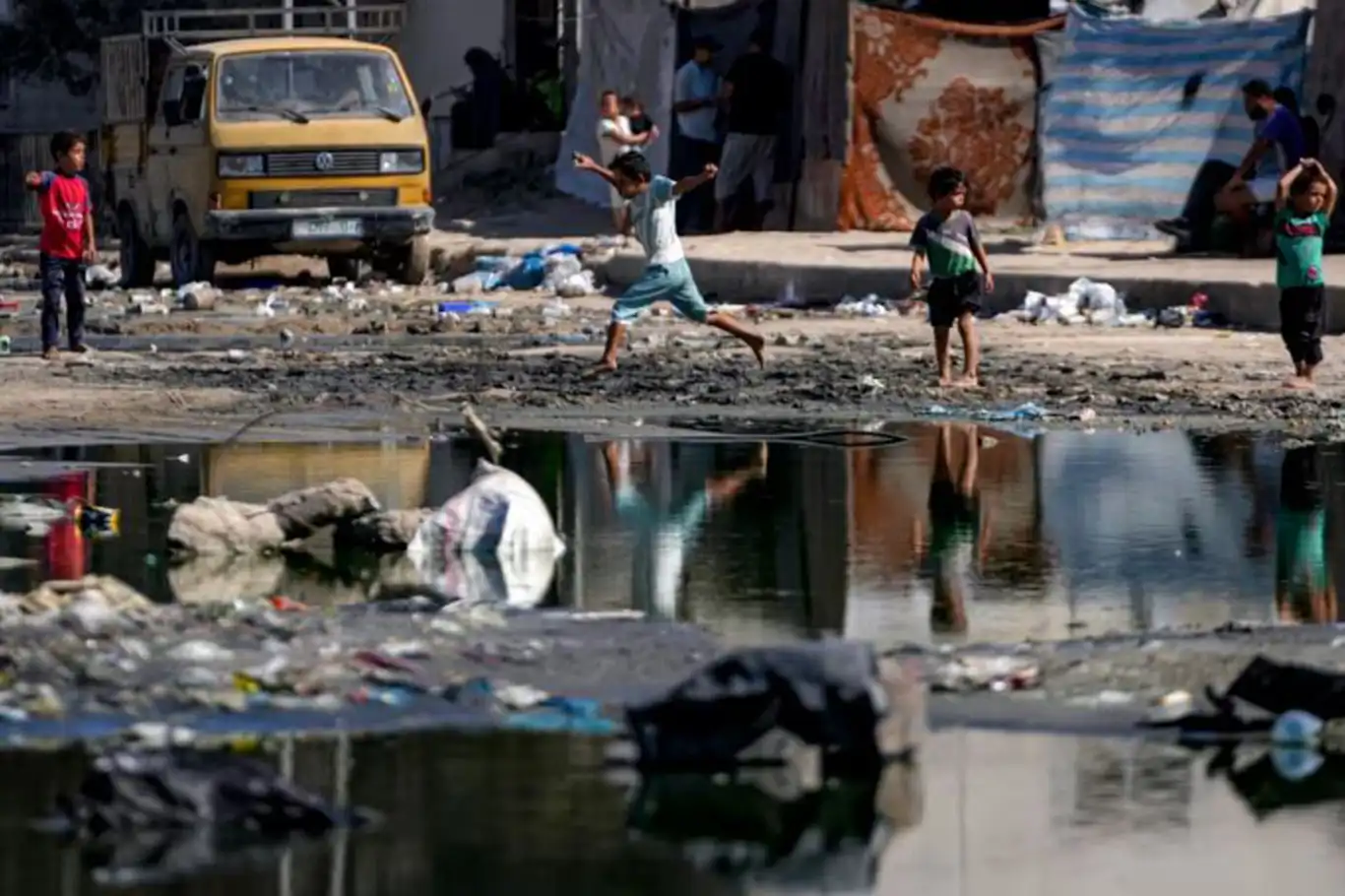WHO: Gaza’s disease outbreak “spiraling out of control” as Israel chokes aid flow


The World Health Organization (WHO) has warned that infectious diseases in the Gaza Strip are “spiraling out of control,” as the territory continues to reel from the devastation caused by Israel’s months-long genocidal war.
Despite a fragile ceasefire, aid agencies report that Israel continues to restrict vital humanitarian aid, deepening the suffering of Gaza’s displaced population.
According to WHO officials, only 13 of Gaza’s 36 hospitals remain partially operational, with most severely damaged or functioning under catastrophic conditions. “Whether meningitis, diarrhea, or respiratory illnesses — we’re talking about a mammoth amount of work,” said Hanan Balkhy, the WHO’s regional director, describing Gaza’s health crisis as unprecedented in modern times.
Balkhy emphasized that Gaza’s healthcare system has been “dismantled” by the Israeli onslaught, which targeted hospitals, clinics, ambulances, and medical personnel in blatant violation of international law. “Just rebuilding Gaza’s hospitals will take billions of dollars and decades of work,” she said, noting that many facilities have been reduced to rubble and must be completely rebuilt.
Since the ceasefire agreement between Israel and Hamas went into effect on Monday, the U.N. World Food Programme (WFP) has managed to deliver an average of 560 tons of food daily into the besieged enclave. Yet, aid officials warn that this remains far below what is needed to sustain Gaza’s population of over 2 million people, most of whom are homeless, malnourished, and suffering from disease.
“The ceasefire has opened a narrow window of opportunity, and WFP is moving quickly to scale up food assistance,” said a WFP spokesperson. “But we are still far below what Gaza needs to survive.”
The U.N. estimates that the cost of reconstructing Gaza has soared beyond $70 billion, as up to 92% of the territory has been destroyed or rendered uninhabitable by Israeli bombardments. The destruction has left Gaza’s infrastructure — including water systems, power grids, and hospitals — in ruins, with experts warning that rebuilding could take generations.
Under the terms of the 20-point ceasefire plan, international organizations and regional partners are expected to assist in reconstruction efforts. However, humanitarian workers fear that without the complete lifting of Israel’s blockade and occupation, rebuilding efforts will remain symbolic rather than substantive.
While Hamas has handed over all 20 living hostages and the remains of those it could locate, Israeli officials continue to accuse the movement of withholding others — claims that U.S. officials have contradicted, noting that many bodies remain buried under the rubble of Israeli airstrikes. Turkish authorities have offered to send search-and-rescue experts experienced in earthquake recovery to help locate the remaining bodies.
Despite the ceasefire, Israeli forces continue sporadic raids and strikes across Gaza, while internal instability — fueled by Israel’s destruction and displacement policies — threatens the fragile peace. Aid convoys have been halved by Israeli authorities, who claim Hamas has not fully complied with the terms of the deal, further tightening the siege on an already devastated population.
International observers and human rights organizations have warned that unless Israel is held accountable and the siege is permanently lifted, Gaza’s humanitarian collapse will only worsen. “The diseases, hunger, and suffering we are seeing in Gaza are not natural disasters,” one aid worker said. “They are the result of deliberate policies — and the world cannot continue to look away.” (ILKHA)
LEGAL WARNING: All rights of the published news, photos and videos are reserved by İlke Haber Ajansı Basın Yayın San. Trade A.Ş. Under no circumstances can all or part of the news, photos and videos be used without a written contract or subscription.
The humanitarian toll in Gaza continues to rise despite a ceasefire declared earlier this month, with medical authorities reporting that at least 68,116 Palestinians have been killed and 170,200 others injured since Israel began its large-scale assault on the besieged enclave in October 2023.
Three people were killed and five others injured in a powerful explosion at the Avangard chemical plant in the Russian republic of Bashkortostan.
A week after devastating floods swept through five central and eastern Mexican states, the federal government confirmed that the death toll has risen to 72, with another 48 people still missing.
A senior Pakistani delegation has arrived in Doha, the capital of Qatar, to hold critical talks with representatives of the Islamic Emirate of Afghanistan, marking a significant step toward de-escalation following last week’s deadly border clashes between the two neighboring countries.